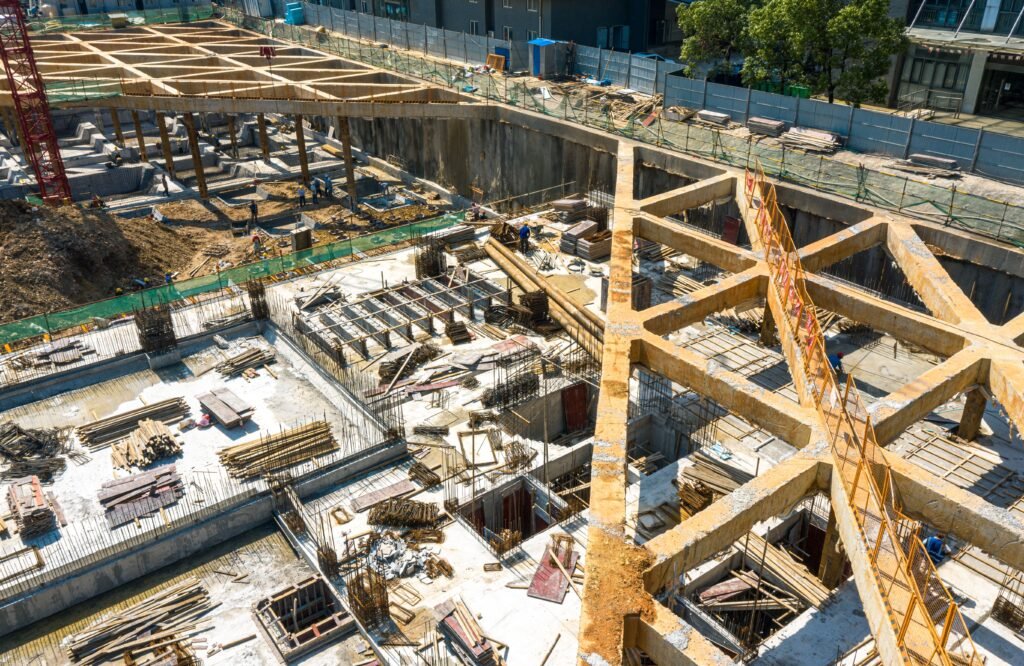The Role of Engineering in Modern Infrastructure Development
Infrastructure development is key to economic growth and improving society. As cities grow, the need for better roads, bridges, and buildings increases. Engineers play a major role in creating strong and sustainable infrastructure. At Kuppus Engineers, we focus on providing expert engineering solutions for modern infrastructure. Our work ensures that cities grow in a sustainable and efficient way.
In this blog, we will explore how engineering helps develop infrastructure and why it is vital for modern cities.
Why Engineering is Crucial for Infrastructure Development
Engineering is at the heart of infrastructure development. From designing roads to planning bridges, engineers make sure that infrastructure is both safe and long-lasting. Without engineering, cities would struggle to grow in a way that meets the needs of modern life.

Key Areas Where Engineering Supports Infrastructure:
- Design: Engineers design the layout of infrastructure projects to ensure they are safe and efficient.
- Construction: Engineers manage the building of roads, bridges, and public buildings, making sure they follow proper standards.
- Sustainability: Modern engineering focuses on using eco-friendly materials and reducing waste during construction.
The Role of Civil Engineering in Modern Cities
Civil engineering is one of the most important types of engineering. It focuses on building things like roads, bridges, and water systems. These structures are the foundation of any city.

How Civil Engineering Drives Infrastructure:
- Urban Growth: Civil engineers help create cities that can handle growing populations. They design housing, roads, and public transport systems.
- Structural Safety: Engineers make sure that buildings and bridges are strong enough to last. They design structures that can withstand earthquakes and storms.
- Eco-friendly Solutions: Civil engineers use sustainable methods to reduce the environmental impact of infrastructure projects.
“Civil engineers build the backbone of cities, ensuring they grow safely and sustainably.” — Chief Engineer, Kuppus Engineers
The Importance of Engineering in Urban Development
As cities grow, engineers must design systems to support the increasing population. Urban development relies on engineers to create roads, public utilities, and buildings that improve the quality of life.
Key Engineering Contributions to Urban Areas:
- Efficient Transport: Engineers create better roads and bridges to reduce traffic and improve public transport.
- Public Services: Engineers plan and design systems for water, electricity, and waste management.
- Smart Infrastructure: Engineers use modern technology to make buildings and systems more efficient and sustainable.
Overcoming Challenges in Infrastructure Development
Building large infrastructure projects is not without challenges. Engineers often face problems related to the environment, budgets, and time limits. At Kuppus Engineers, we specialize in finding innovative solutions to these challenges.
Common Challenges:
- Environmental Concerns: Construction can harm the environment. Engineers work to reduce this impact.
- Budget Limits: Many projects have tight budgets. Engineers must find ways to keep costs low without sacrificing quality.
- Time Constraints: Infrastructure projects often face delays. Engineers use modern tools to keep projects on schedule.

How Engineers Solve These Problems:
- Sustainable Designs: Engineers use renewable materials and eco-friendly methods to reduce environmental damage.
- Effective Project Management: Engineers use advanced tools to plan, budget, and execute projects on time.
- New Technology: Engineers use new technology to solve complex problems, such as building smart infrastructure systems.
Innovation in engineering is crucial to solving the challenges of modern infrastructure. – Senior Project Manager, Kuppus Engineers
Engineering Innovations for Smarter Infrastructure
Engineering innovations are transforming how we build infrastructure. New tools and methods allow engineers to create smarter, more sustainable cities.
Key Engineering Innovations:
- Building Information Modeling (BIM): This technology allows engineers to create digital models of buildings. It improves accuracy and reduces waste.
- Sustainable Materials: Engineers are using low-carbon concrete and solar panels to make buildings eco-friendly.
- Automation and Robotics: Automated machines help engineers complete tasks faster and with better precision.
- Smart Infrastructure: Engineers use smart grids and IoT systems to improve efficiency in transportation and energy use.
Kuppus Engineers’ Role in Infrastructure Development
At Kuppus Engineers, we are proud to lead the way in modern infrastructure development. Our team combines expertise and innovation to build infrastructure that meets the challenges of today’s cities. We use advanced tools and sustainable practices to deliver the best results.
Why Choose Kuppus Engineers:
- Expert Civil Engineers: We have extensive experience in civil engineering projects.
- Innovative Solutions: We use modern technology to create sustainable, efficient infrastructure.
- High Quality: We prioritize safety, quality, and sustainability in every project.
Conclusion
Engineering plays a vital role in shaping the infrastructure of modern cities. Through careful design, sustainable practices, and innovative technology, engineers create systems that support urban growth and development. At Kuppus Engineers, we are committed to building smart, sustainable infrastructure that enhances the quality of life in cities around the world.
Whether you’re working on a large public project or a smaller development, Kuppus Engineers has the experience and expertise you need.




